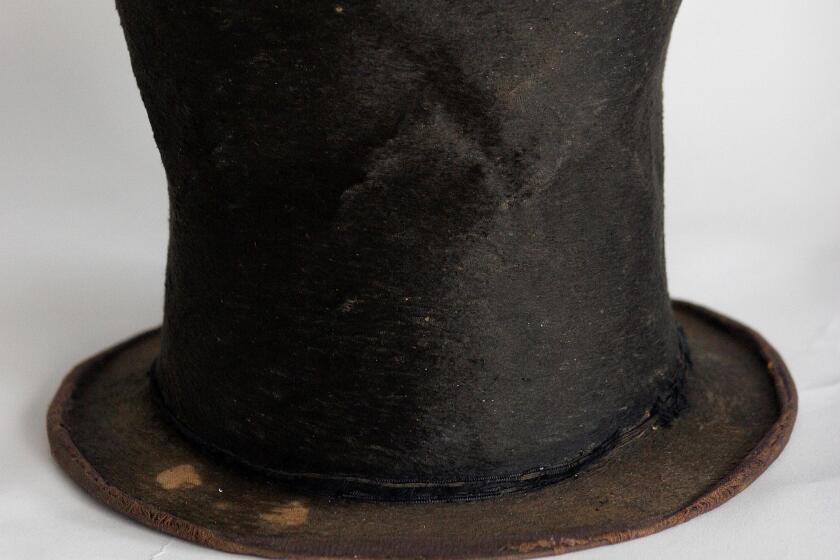Presidents have changed the office over time. Will Trump have a lasting impact too?
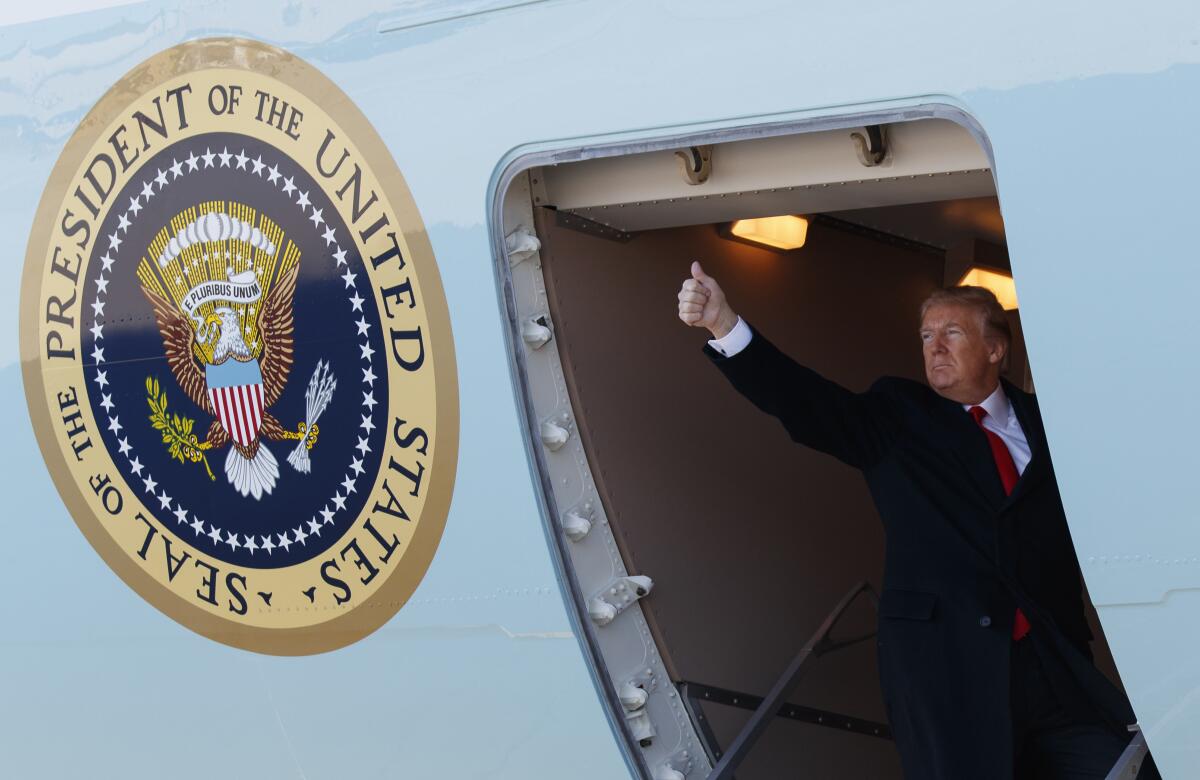
- Share via
George Washington made it a temporary position. Abraham Lincoln transformed it into the preeminent post in the nation. Theodore Roosevelt converted it into the “bully pulpit.” Franklin D. Roosevelt conceived of it as “preeminently a place of moral leadership.”
And, with his impulses, his insults and his inclination toward disruption, Donald Trump has remade the presidency into — well, what exactly? Even with an impeachment trial looming, that is one of the great unknowns of the age, and surely the most important debate in contemporary presidential studies.
“This is the big mystery in America,” said Jon D. Michaels, an expert on presidential power at the UCLA School of Law. “With the biggest classroom in America, the question is how much Donald Trump has expanded, subverted or enhanced in a regal fashion the presidency. How much or how permanently he has changed the constructional discourse while raising questions about whether presidents need to behave civilly, and whether there are the bounds in which presidents can be held responsible for their acts and remarks.”
Gone are the days when Ulysses S. Grant (president 1869-77) would work from 10 a.m. until 3 in the afternoon and then take a carriage ride, or when Chester A. Arthur (1881-85) could tell a gaggle of reporters that “I make it a habit not to talk politics with you gentlemen of the press.”
Like the country itself, the presidency is constantly evolving, continually being remade, reshaped and repositioned, mirroring America’s changing role in the world, taking on the character, personality and inclinations of the occupant of the White House.
Some presidents — like Thomas Jefferson, who expanded the country by making the United States a continental empire, and Woodrow Wilson, who expanded the American horizon by extending American power overseas — overhaul the presidency and, with it, the country.
And some, like Rutherford B. Hayes (1877-81) and Benjamin Harrison (1889-93), are among the late 19th century presidents so colorless that it is difficult to tell them apart. Those presidents by and large left the architectural pinions of the institution intact.
“The presidency defines the country and sets the mood of the country,” said Scott Reed, former executive director of the Republican National Committee. “And each president has to decide whether he’s going to move for change or retain the status quo.”
Ordinarily these questions are the preoccupation of scholars, who examine the presidency the way myrmecologists study Asian needle ants or glaciologists scrutinize ice sheets. But the last two White House occupants have transformed the study of the presidency, and debating these questions has become a national pastime practiced on cable television and at the family dinner table.
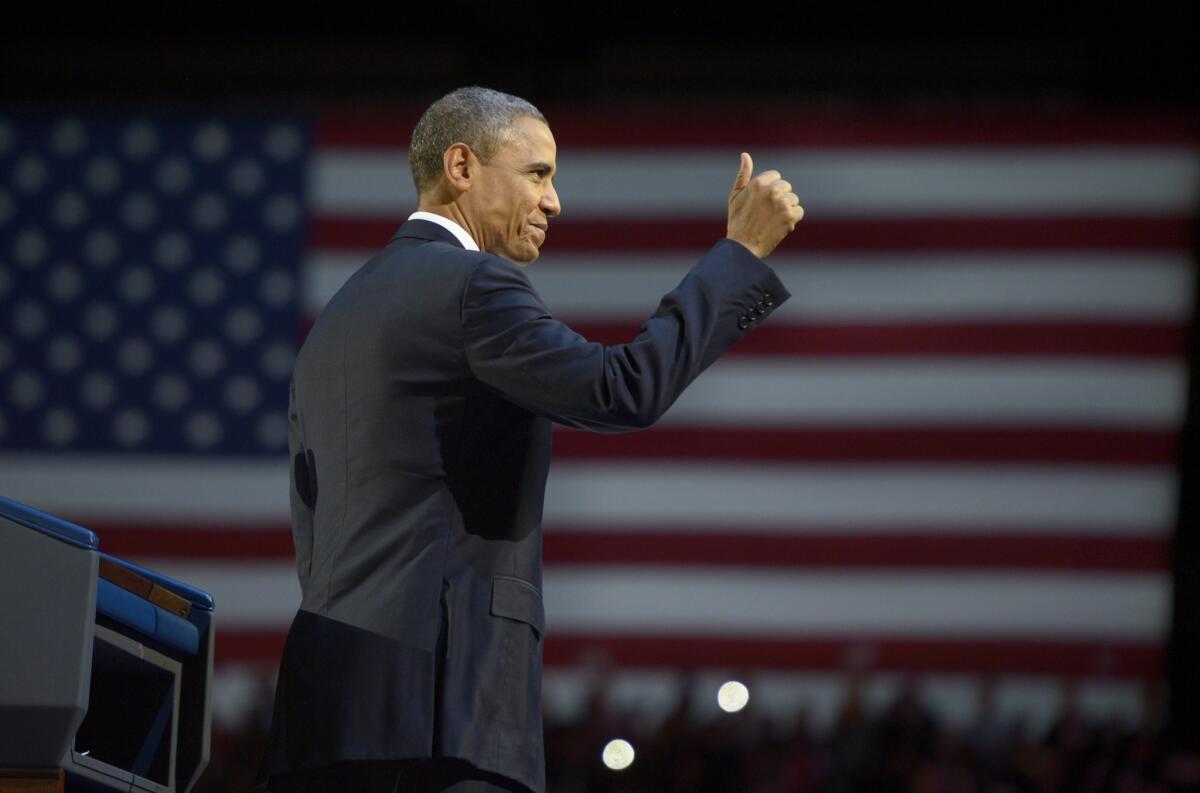
“The history of the presidency is mostly about adaptation,” said William Howell, a presidential expert at the University of Chicago. “But, boy, things look awfully different now than they did a few years ago.”
Barack Obama and Trump transformed the presidency merely by being elected, one as the first African American president, the other by gaining office without the traditional prerequisites or personality traits. By pioneering new forms of communication, harnessing new forms of presidential power, displaying new forms of presidential comportment, they have changed the office more than at any time since Franklin Roosevelt (1933-45), perhaps since Lincoln (1861-65).
That transformation began with Obama — more cerebral and yet more informal than many of his predecessors, and armed with sensibilities about race unknown in an office that prompted national shock waves when Theodore Roosevelt (1901-09) invited the black educator Booker T. Washington to dine with his family in 1901. That change accelerated under Trump.
“There are presidents who fundamentally transform the office, who reimagine what a president can and should do, and in a weird way, Trump is in that category,” said Adam Frankel, an Obama speechwriter. “It will take time to know how much of what Trump has done will be reversed or corrected, but he fits the mold of a transformer, perhaps in a perverse way.”
::
America’s greatest presidents are those who changed their office the most, which is perhaps why Franklin Roosevelt, then the Democratic presidential nominee and girding himself for the challenges of the Great Depression, said in 1932 that “all our great presidents were leaders of thought at times when certain historic ideas in the life of the nation had to be clarified.”
That is what Washington (1789-97) did when, repeating his gesture of returning to Mount Vernon after the Revolutionary War, disavowed a third term, displaying what Mount Holyoke College colonial scholar Joseph J. Ellis described as “another dramatic surrender of power in the Cincinnatus mode, his last and greatest exit.” The effect was to set a two-term limit that was broken only by FDR.
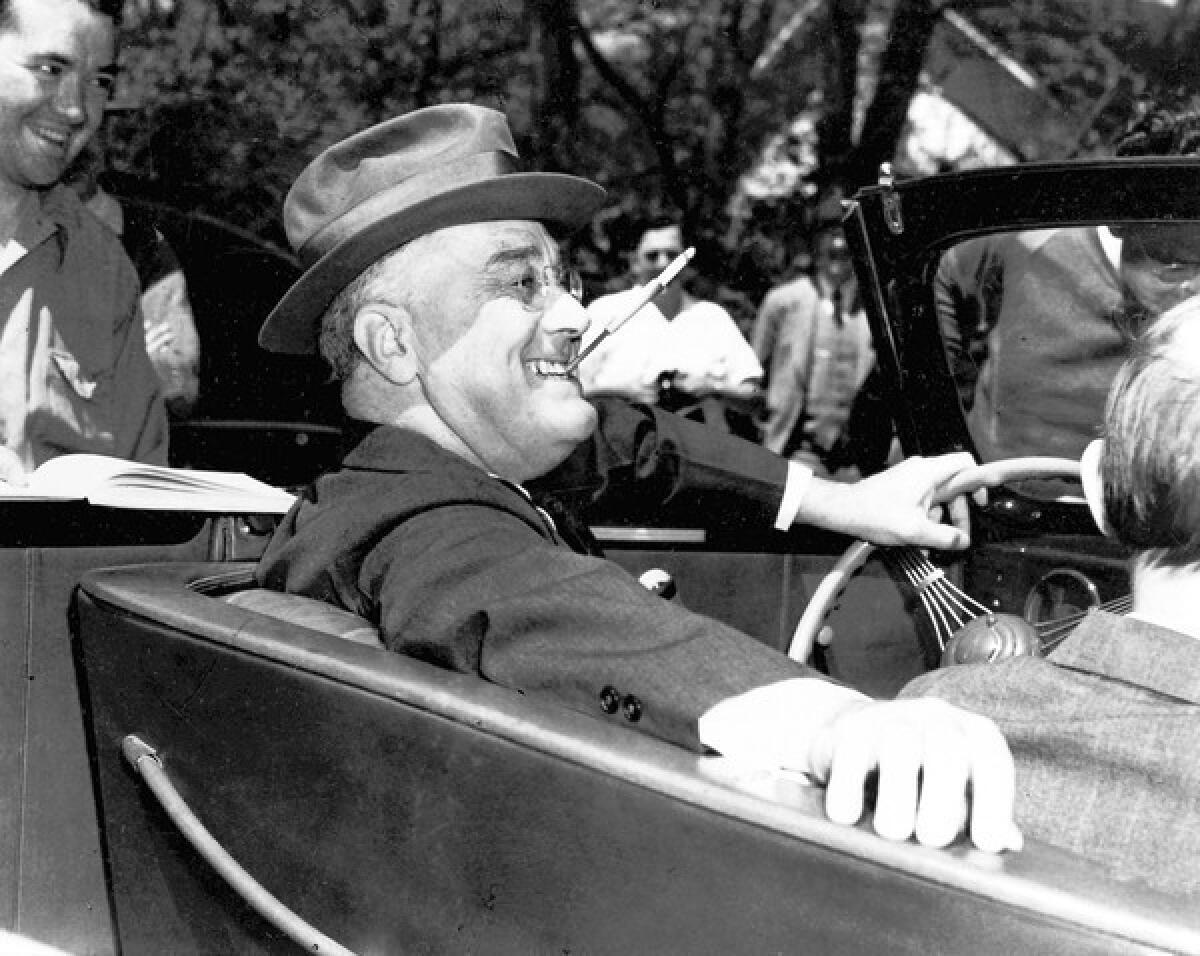
Four years after Washington’s presidency, John Adams (1797-1801) and Jefferson (1801-09) conducted the first American peaceful transfer of power, a development that Jefferson would call “as real a revolution in the principles of our government as that of 76” because his ascendancy was “not effected indeed by the sword ... but by the rational and peaceable instrument of reform, the suffrage of the people.”
Jefferson doubled the size of the country through the Louisiana Purchase, an acquisition not contemplated by the Constitution and, according to Princeton University historian James M. McPherson, “the most dramatic and far-reaching executive action ever made by an American president.”
With his commission of the Lewis and Clark expedition and his control of governments in the newly acquired inland empire, Jefferson, once a fervent exponent of limited government, substantially expanded presidential power.
The populist Andrew Jackson (1829-37) symbolized, and courted, a new genre of American: unpretentious, ambitious, striving, neither the heir of wealth nor possessed of airs. The contemporary historian Jon Meacham wrote that in the Jackson presidency, ”one marked by both democratic triumphs and racist tragedies, we can see the American character in formation and in action.”
So much so that Franklin Roosevelt would cite Jackson as a vital molder of American culture. It would never be possible, he said, for any one group to permanently control politics in America. “This heritage ... we owe to Jacksonian democracy,” Roosevelt said.
Few chief executives have had such an enduring effect on the office and country as Lincoln.
‘The history of the presidency is mostly about adaptation. But, boy, things look awfully different now than they did a few years ago.’
— William Howell, presidential expert at the University of Chicago
“A fox by training and instinct,” in the characterization of Williams College historian James MacGregor Burns, Lincoln “rose to the stature of Herodotus’ hedgehog which knew one big thing — and of Machiavelli’s lion that could command followers and frighten wolves.”
That had both a political and bureaucratic meaning. When Lincoln came into office, the presidential Cabinet had been expanding in power and autonomy, and evolved into something like the British Cabinet, seeing itself as the real policy body. “Lincoln changed that in a heartbeat,” said Gettysburg College historian Allen Guelzo.
“He made it clear the president was in charge and he told the Cabinet officers what they should do — and they had to do it,” Guelzo said. “That was a dramatic change and a complete revision of its role, and Cabinets now operate the Lincoln way.”
But Lincoln’s impact was even broader. He signed the Emancipation Proclamation. He prosecuted, and won, the Civil War. His Gettysburg Address applied the “created equal” language of the Declaration of Independence to the country’s moral vision, elevating it from aspirational to actual, transforming it from a proposition to a principle.
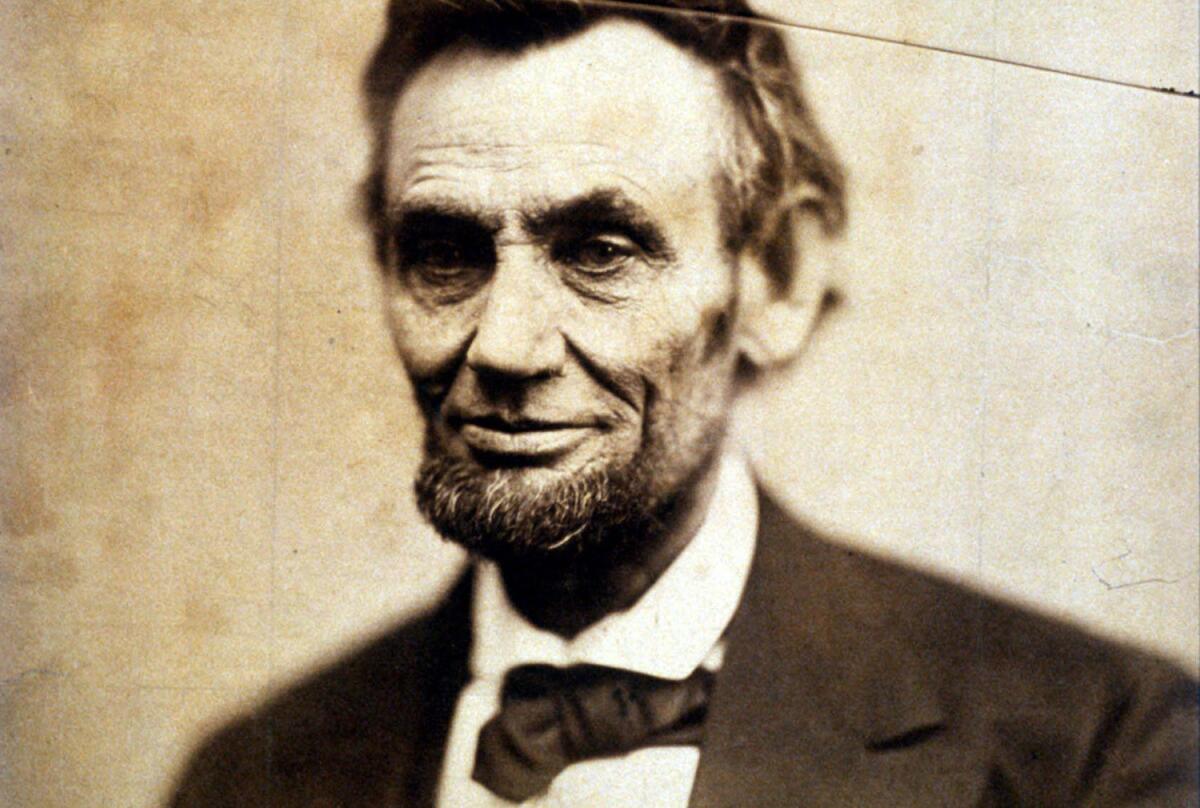
A study found no evidence to corroborate that a beaver-skin stovepipe hat, a centerpiece of Illinois’ Abraham Lincoln museum, ever actually belonged to Lincoln.
::
The Yale University presidential scholar Stephen Skowronek describes the presidency as “an office that routinely disrupts established power arrangements and continually opens new avenues of political activity for others.”
In his classic 1993 “The Politics Presidents Make,” he portrays the presidency as an “instrument of negation”:
“Too blunt in its disruptive effects to build securely on what has come before, it has functioned best when it has been directed toward dislodging established elites, destroying the institutional arrangements that support them, and clearing the way for something entirely new.”
That sure sounds like a description of the last three years in the White House, but Skowronek, citing Jimmy Carter (1977-81) and John Quincy Adams (1825-29), has argued that loner presidents with those goals have found the task of reordering the country too much for them. “A great disrupter who does not set a new standard of legitimacy,” he argued in a 2017 essay in the Washington Post, “will just pull things apart.”
Perhaps. But besides assailing trade pacts, withdrawing from international accords, dismantling regulations and hardening the government’s posture toward immigration, Trump has altered the personality of the presidency.
“We’ve never dealt with a figure like this in American history before,” former presidential candidate Marianne Williamson said during a Democratic debate in August. “This man, our president, is not just a politician. He’s a phenomenon.”
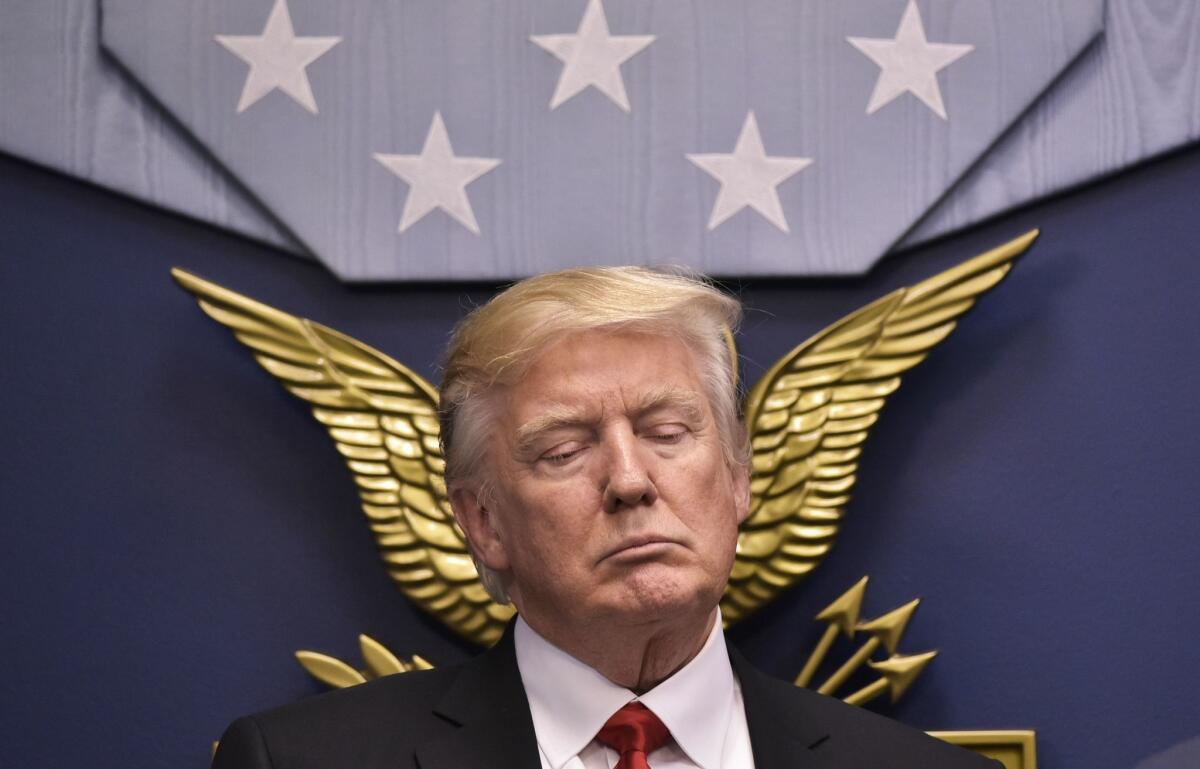
With late-night tweets, vulgar locutions and personal attacks, Trump has displayed comportment at odds with every previous president, including Richard Nixon (1969-74), whose expletives and private musings on ethnicity were shocking in the early 1970s.
“The question is whether he has changed the presidency or changed the values of the country,” said Susan Dunn, an expert on Franklin Roosevelt who teaches a seminar in the Art of Presidential Leadership at Williams College. “When you think about respect and decency and generosity, you have to wonder if with Trump’s grotesque, degrading tone we are at risk of losing our civility.”
Manners aside, Trump has pioneered new ways of communicating with the public, bypassing televised news conferences or addresses, which John F. Kennedy (1961-63) and Ronald Reagan (1981-89) used with a deftness that eluded Nixon and Carter. That likely will endure.
“Trump has changed the ways presidents communicate by bypassing formal channels through his use of Twitter, operating unchecked in the middle of the night and in his bathrobe,” said Tom Holliday, a USC expert in political communication. “This is the kind of communication that would get you sanctioned in a corporation. And I think, sadly, that this will persist beyond his presidency.”
So may the political content of the Trump years. David Azerrad, who directs the Simon Center for Principles and Politics at the conservative Washington-based Heritage Foundation, believes Trump’s hectoring of the news media and use of biting nicknames will disappear, but the political coalition Trump sculpted (“working-class solidarity and socially conservative sensibility,” in Azerrad’s characterization) and the confrontational political style he employed will remain a formidable force.
Trump’s dominance of Congress likely will continue if he wins a second term and if the Republicans retain control of the Senate and retake the House. It is almost axiomatic that Congress has little power when it is controlled by the same party that holds the presidency.
But, said Colby College political scientist L. Sandy Maisel, “if Trump is reelected and the Democrats take the Senate, Congress will have a lot of negative power — not so much the power to do something but instead the power to stop something from being done.”
That would have implications in budget negotiations, regulatory matters, perhaps foreign affairs, and certainly in court appointments, especially to the Supreme Court.
“Of the many ways in which Donald Trump’s presidency is likely to redefine the meaning of America — in my view, for the worse — few are likely to be as significant or as enduring as his fundamental transformation of the federal judiciary, from the Supreme Court to what the Constitution quaintly calls the ‘inferior’ federal courts,” said Laurence M. Tribe, a constitutional expert at Harvard Law School. “To think that someone as disinterested in facts and truth and as disconnected from the deepest values of America will play so major a role in so many lifetime appointments with such profound impact is, to me, little short of appalling.”
And while the Trump selections affect a range of political, social and cultural issues, his appointments have an important side effect: the potential of affecting the presidency itself if issues of separation of powers or, especially, White House actions, come before the high court.
Alexander Hamilton, one of the authors of the Federalist Papers and a figure whose views on American government are as relevant today as in 1788, believed that “energy in the executive is a leading character in the definition of good government.”
That focus on the executive underlines the significance of even the smallest changes in the nature and character of the presidency.
In his biography of Lincoln, Ronald C. White Jr. said that over time the 16th president “came to believe that each generation must define America in relation to the problems of its time,” a view expressed in Lincoln’s 1862 remark that the “dogmas of the quiet past are inadequate for the stormy future.”
That — from Jefferson to Trump — is the view of every president who has changed the presidency and in so doing both reflected and caused changes in the country.
Shribman is a special correspondent.
More to Read
Sign up for Essential California
The most important California stories and recommendations in your inbox every morning.
You may occasionally receive promotional content from the Los Angeles Times.
